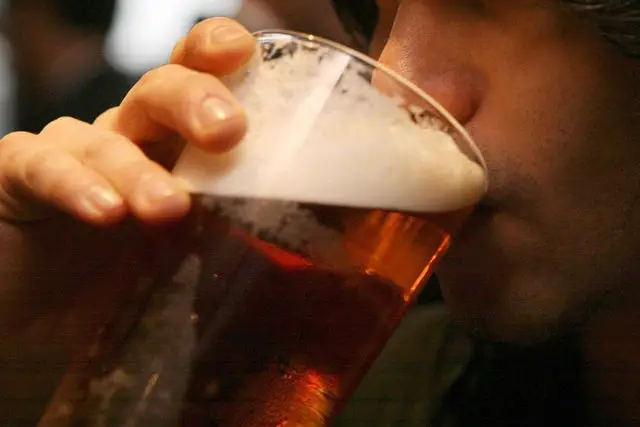Nine in every ten people with alcohol dependency on the Isle of Wight are not attending any treatment programme to stop drinking.
Mental health and alcohol charities have called on the Government to increase funding for these services and simplify the application process for psychological support.
86% alcoholics did attend therapy
The latest figures from Public Health England show that 86% of alcohol-dependent residents in the council did not go for any therapy in 2016-17.
This proportion was better two years earlier when 83% did not receive psychological treatment.
Referrals suspended
As reported earlier this month, the Island Recovery Integrated Service (IRIS) has temporarily stopped accepting new referrals into the Alcohol Treatment service due to recruitment problems.
Over 1,500 residents depend on alcohol
Public Health England estimates that the Isle of Wight had 1,513 people suffering from alcoholism based on a national survey of 7,500 adults across England.
The survey revealed that nationally, men were more likely than women to drink at hazardous levels.
Men and women claiming benefits were more likely to be harmful or mildly dependent drinkers than those who were not.
Addaction: “Fewer resources” to help
Julie Breslin, the alcohol specialist for the mental health charity Addaction, put this low proportion of drinkers receiving assistance down to public budget cuts, among other factors.
She said:
“Cuts in local authority funding, up to half in some cases, means services are expected to see more people with fewer resources.
“Dependent alcohol use will often present with other complex issues including socio-economic problems, cognitive impairment, depression and health issues. It’s crucial that service design makes sure treatment is as accessible and flexible as possible.”
53.2% Islanders completed treatment
Among those who attended therapy on the Isle of Wight, 53.2% completed the treatment successfully, according to the latest figures, from 2016.
Patients are considered successful if they do not need further medical support for six months after completing the therapy.
Rate of recovery above average
The rate of recovery on the Isle of Wight was above the average for England, where 38.7% of the patients quit drinking thanks to the therapy.
Top of the ranking was Slough, where 71% of the patients did not have any relapse. Milton Keynes was at the bottom, with a rate of success of just 17%.
Stigma around asking for help an issue
Kelly Feehan, services director at CABA, a charity devoted to promoting public well-being, said:
“One of the major issues is the stigma around asking for help, because they not only have to admit they have a problem, but also that they can’t cope with it.”
“Alcoholism affects people both physically and mentally, and whilst many are familiar with the physical side effects that the condition can present, the mental impact can often go under the radar.”
Article shared by Data Reporter as part of OnTheWight’s collaboration with Press Association and Urbs Media





